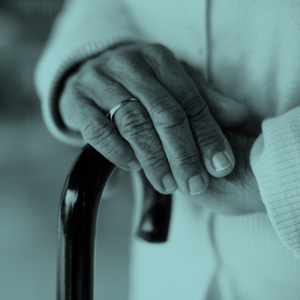
Professor Lisa Bayliss-Pratt - Shape of Caring – Tuesday 16 January 2018
The first Care Conversation of 2018 heard from Director of Nursing at Health Education England, Professor Lisa Bayliss-Pratt
- NULL - NULL
- NULL
The future of healthcare would look very different, Lisa Bayliss-Pratt told Care Conversation delegates, with developments in areas such as artificial intelligence and self-care alongside the well-documented challenges of an aging population. “It means we have to look at new ways of delivering care. The advanced nursing practice of today needs to be the standard practice of tomorrow.”
People are living longer, which is generally to be welcomed, but this also means that more are living with multiple chronic conditions, she stated. “Anyone interacting with those people needs to be fleet of foot and flexible. It’s not enough to just concentrate on one condition.”
Health Education England’s (HEE) role is to help improve health and wellbeing by developing a workforce with the right skills and values to deliver outstanding healthcare, she said. “We need to make sure that there are enough nurses, doctors and therapists in the future to deal with the growing demand. The money is planned on an annual cycle, but it takes APPROXIMATELY three years to train a nurse and 15 years to train a doctor.”
We also need to make sure that these staff – with their expensive clinical training – are not spending an undue amount of time on administrative work. she pointed out. “So it’s not just the size of the workforce, but the structure that needs to be addressed.”
It is vital to get the message across that the NHS is “a great place to work”, she stressed. In 2016 HEE published its Raising the Bar report, which looked at the future education and training of nurses at all levels of the career path, from care assistant to consultant nurse or post-doctoral fellow. “When we dug deeper, we found that it’s not just the skill-mix re-design we need to focus on, but the retention of staff.” Turnover of nurses can be as high as 32%, she said. “Leadership is an issue, but also the fact that organisations put a lot of energy into recruitment but tend to focus less on retention.
The most important thing is “getting the right people with the right abilities to care”, she said. “Caring is key, and the other thing we should talk about more is excellence as a concept. We talk about good care and high-quality care, but how do nursing and care teams achieve excellence?” Prospective candidates who had all the right values could be discouraged by job descriptions that demanded previous care experience, for example, and the image of the profession had also suffered after the Mid Staffs scandal – “it was nursing and care, rather than medical interventions, that were at the forefront of that”. A review of the care support (the Cavendish Review) workforce led by Baroness Cavendish concluded that while funding was undoubtedly an issue, another key problem was that care staff often didn’t always feel valued.
It is vital to create a situation where the right people could be brought into the profession, she told the seminar. “It’s all about bringing those barriers down. You might have people with absolutely the right attitudes and attributes, but they may have literacy and numeracy issues, for example. Putting a package in place to address that is relatively straightforward, whereas you can’t put a package in place to give someone the attitude or ability to care. And the loyalty you then get from people who’ve been given that kind of chance is extraordinary.”
Employing people who need support means that having the right teams and infrastructure in place is vital,
‘However,’ Professor Bayliss-Pratt emphasised that: ‘I truly believe that In nursing, 99% of people go into work to do the right thing, every day. People don’t turn up to work to a bad job.”
The Raising the Bar review also found that many registered nurses and care assistants felt that there was a need for a suitable post between the two, which had led to the creation of the nursing associate role to bridge the gap. “It goes back to that loyalty – these are people who always wanted to be a nurse but never thought it was within their sights. They’re incredibly committed to their employers and to improving themselves.”
It is vital that health and care staff reflect their community and the wider population, she said, which also means looking to the private sector and beyond. “You should really be horizon scanning across all areas of care provision to see how you can keep people safe. There are lots of great nurses out there.”
It is also essential that health and social care is properly integrated, she stated. “The Secretary of State having care in his remit means that this agenda is getting the attention it deserves, but we need to properly work across health and social care boundaries, and that comes back to those issues of leadership and valuing people.
Get in touch to register your interest in joining the network
View all past events
